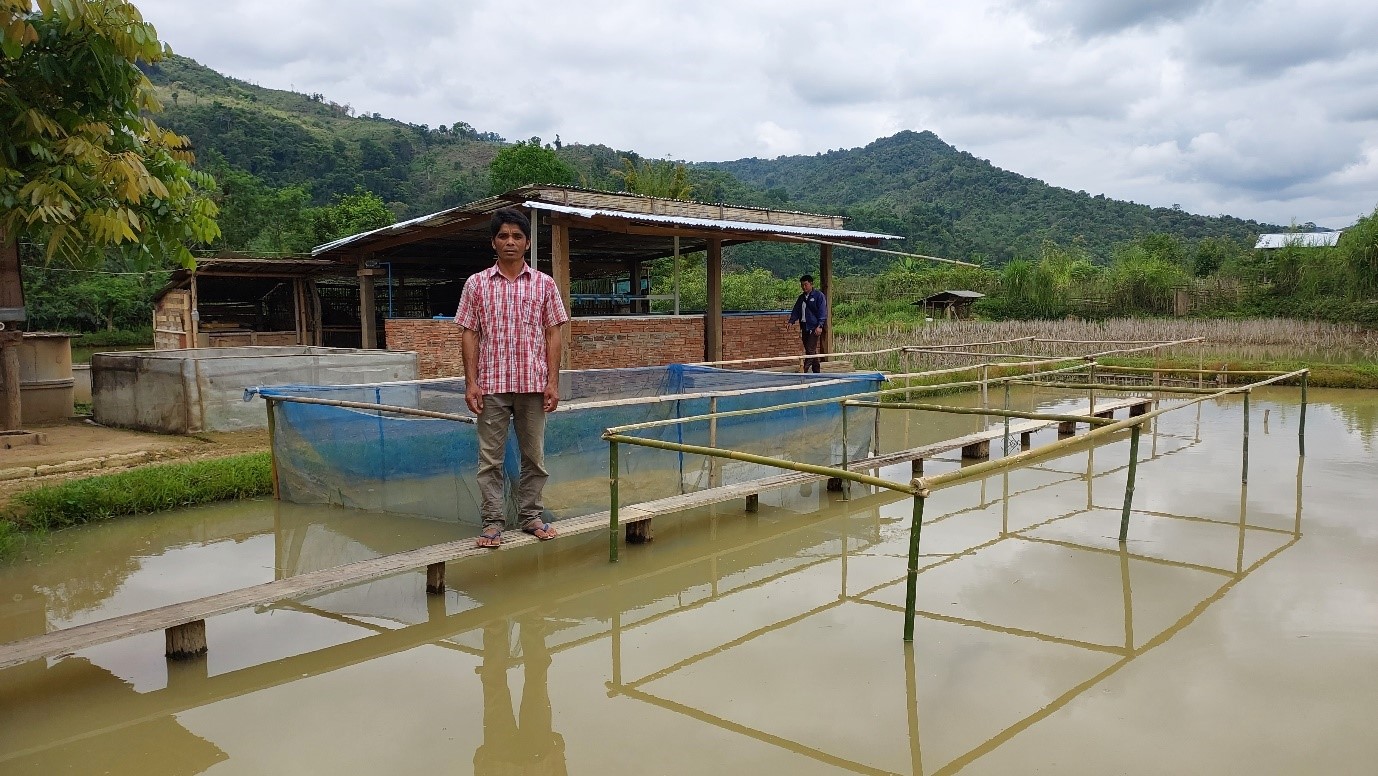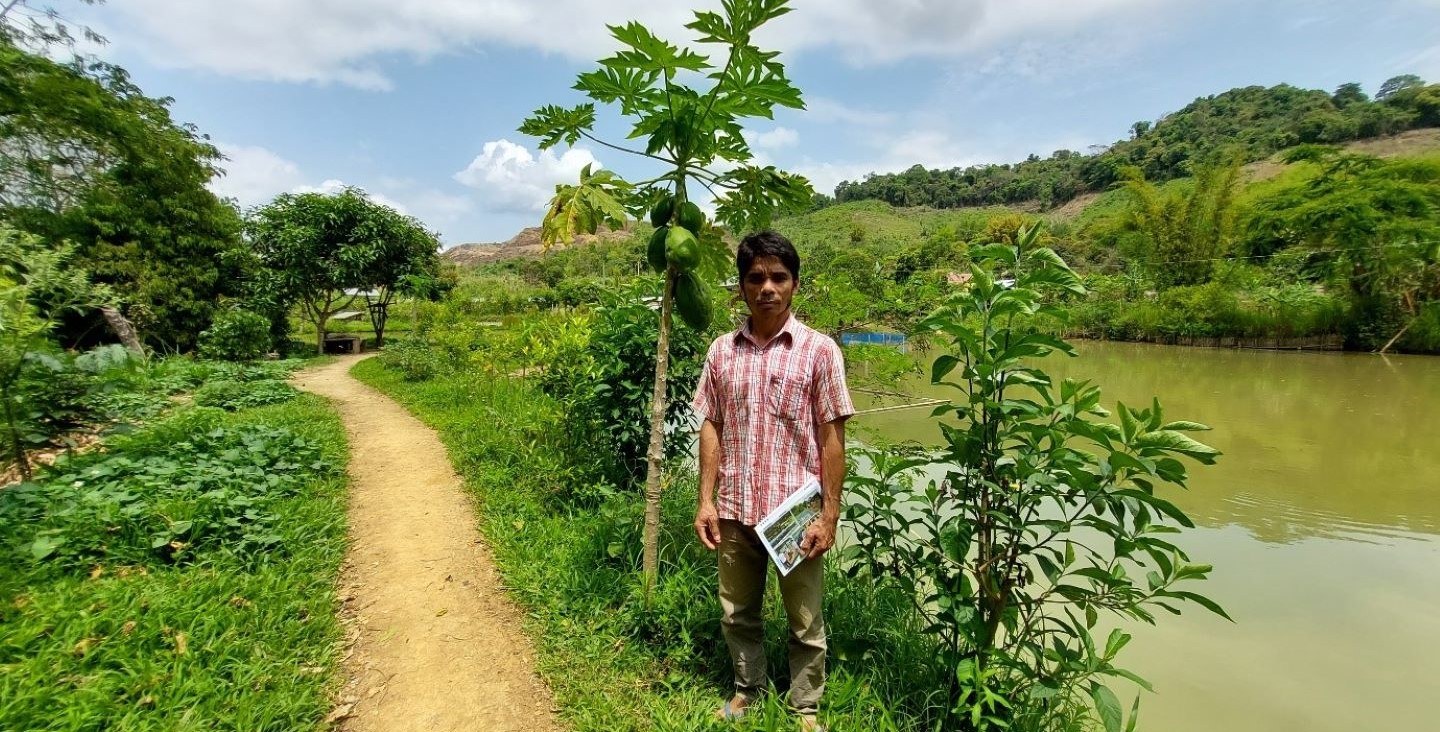Fish farming brings prosperity in the Lao People’s Democratic Republic
The misty northern hills of the Lao People’s Democratic Republic are known for their untouched natural beauty. Despite the lush terrain, communities living in this rural area are some of the most impoverished in the country.
Over the last decade, rising incomes in farming communities have greatly contributed to reducing poverty – yet more than 80 per cent of poor people in Lao still come from rural, farming households.
But now local farmers, like Xieng Phengthavong in Bouak village, are working with IFAD’s AFN initiative to change this. In the process, they’re earning more for their families and growing their business.
All his life, Xieng had grown rice in his small plot of land, cultivated vegetables in his home garden, and raised fish in his fishponds. It was enough to feed his household, but not enough to sell and earn a reliable income. Moreover, his family was always at the mercy of unexpected climate events like floods.
In 2020, he was among the Bouak farmers who joined AFN project staff to change rural fortunes in the area. Water is abundant all year round in this region, and Bouak village is located close to the district market. These were, they realised, the perfect conditions for fish farming. That’s how Xieng’s fishponds became the seed of his family’s prosperity.
The road to success

AFN staff provided Xieng with intensive training on fish-raising techniques. They also gave him a grant of US$ 500 to buy healthy fingerlings (baby fish) imported from neighbouring Viet Nam to stock three fishponds. That year, he worked tirelessly to apply his new knowledge and create the perfect conditions for fish by improving and deepening his ponds and building protections against flooding.
During that first year, Xieng sold about 200 kg of fish at the district market, bringing home US$ 2,000 – nearly twice what he’d earned the previous year. He ploughed this profit back into his business, and constructed a fish breeding facility. From then on, he not only produced fingerlings for his own farm, he sold them to other farmers in his district. That year, he added another US$ 1,000 to his income – and a wealth of experience and knowledge on raising healthy fingerlings.
A model farmer

Today, Xieng has been recognized as a model farmer by the district authorities. With their help, he’s diversified his business further, and also breeds chickens, ducks and frogs to sell to farmers. He passes on what he has learned to other smallholders, giving them hands-on technical advice on rearing healthy animals.
Xieng is now full of ideas for growing his business. “Grass carp and tilapia fingerlings have a high demand in Xone district, and farmers rely on fingerlings imported from Viet Nam,” he says. “They are expensive and not always of good quality.”
With a little technical knowhow and a start-up grant, Xieng’s business is contributing to the entire rural economy. “The project has given me many opportunities to increase my knowledge and start my business,” he says. “Now I have the confidence to further expand my services and ask for advice from the technical staff at the district agriculture office.”